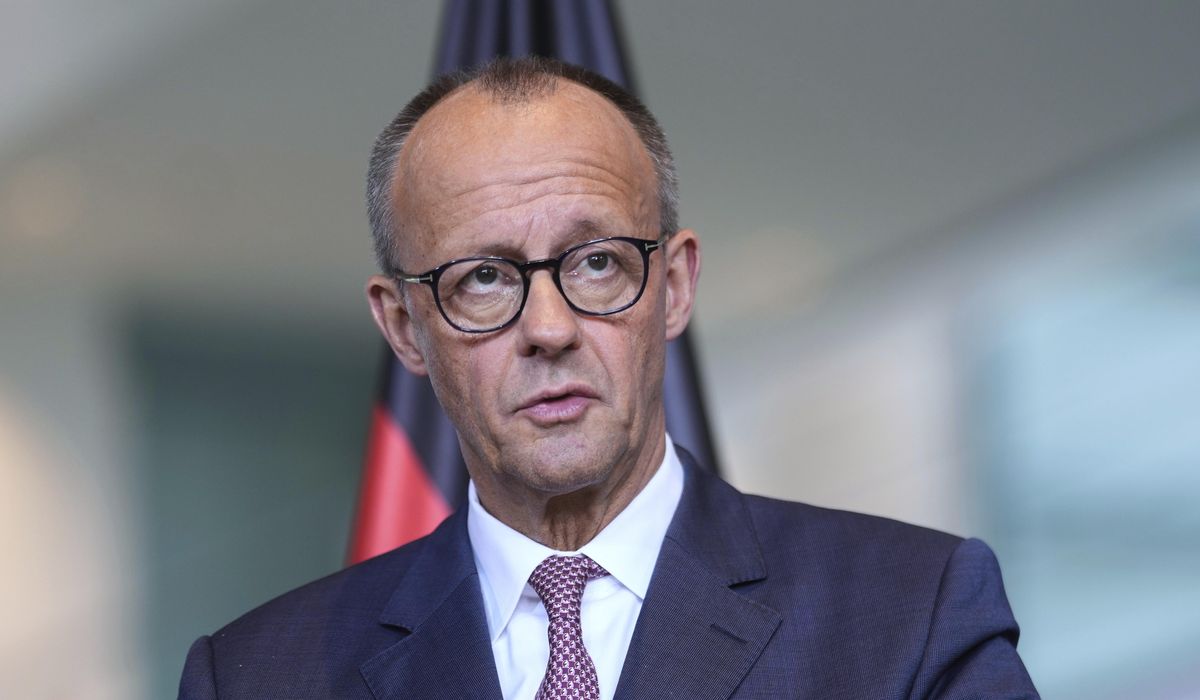


President Trump’s meeting Thursday with German Chancellor Friedrich Merz showcases America’s tough pivot on trade, security and the war in Ukraine.
Mr. Merz, a center-right leader and former corporate attorney, took office early last month and seeks to establish a strong relationship with Mr. Trump, who is looking for wins in balancing what he sees as an uneven relationship between the two nations on trade and defense.
The relationship will be hammered out in before TV cameras at an Oval Office sitdown and behind closed doors at lunch.
Mr. Merz and his team have been preparing the German Chancellor for this meeting and spoke with other foreign leaders who went through the same experience, including British Prime Minister Keir Starmer and French President Emmanuel Macron.
Trade will be front and center.
The U.S. is Germany’s largest trading partner, though Mr. Trump’s tariffs strike at the heart of the German economy, including its automobile sector.
Manufacturers such as Mercedes-Benz and BMW are considering whether to increase production in the U.S. to avoid tariffs.
Mr. Trump imposed a 25% tariff on cars that aren’t made in the U.S.. Additional tariffs on imported steel and aluminum rankled European counterparts.
Mr. Merz, whose country is the most populous and biggest economy in the EU, will be pressed to defend the EU’s retaliation against these levies. The EU is also trying to negotiate down a proposed 20% tariff on EU goods that was imposed, then paused, as part of Mr. Trump’s “Liberation Day” trade announcement in April.
U.S. Trade Representative Jamieson Greer and EU Trade Commissioner Maroš Šefčovič met in Paris this week. They said talks were heading in the right direction.
Additionally, like other European leaders, Mr. Merz will be looking for assurances that the U.S. is still dedicated to defending Europe, as Russia and Ukraine continue to lob attacks at one another and Mr. Trump is urging both sides to end the war.
Mr. Merz met last week with Ukrainian President Volodymyr Zelensky in Berlin, where he announced Germany will up its support of Ukraine by sending over more military equipment and increasing weapons manufacturing in Kyiv.
Mr. Trump and Mr. Zelensky had a contentious Oval Office meeting in February, when Vice President Vance accused Mr. Zelensky of not being grateful for the U.S. support he has received. At the time, Mr. Merz criticized Mr. Trump and Mr. Vance for causing a “deliberate escalation” of tensions between allies.
Mr. Merz also criticized Mr. Trump during the 2024 presidential campaign and doubted the president’s support of American democracy. Mr. Trump’s alignment with Europe’s more conservative political leaders could put Mr. Merz at odds with the president on several issues, including illegal immigration and freedom of speech.
Mr. Vance delivered remarks in Munich earlier this year in which he sharply criticized Germany’s decades-old speech restrictions.
“If you are running in fear of your own voters, there is nothing America can do for you,” Mr. Vance said, stunning the room full of diplomats.
He called on German politicians to eliminate a “firewall” that prevents mainstream parties from including the conservative Alternative for Germany, or AfD, in their government.
The Trump administration supports the AfD’s position on illegal immigration, but the party has been branded as “extreme” by German intelligence. German lawmakers are seeking to ban the party from running in their elections.
A top discussion issue for Mr. Trump is how much Germany is now willing to spend on its national defense. Germany recently abolished borrowing restrictions to enable their country to spend 5% of its gross domestic product on national defense, the amount demanded by Mr. Trump.
However, the money has yet to be appropriated.
Mr. Trump has been calling on Germany and other NATO members to spend more on defense, originally pegging the fair share at 2% of GDP but later raising it to 5%.
Ahead of a NATO defense ministers meeting in Brussels on Thursday, Defense Secretary Pete Hegseth said that all NATO allies had to do their part in the continent’s defense.
“The reason I’m here is to make sure every country in NATO understands every shoulder has to be to the plow, every country has to contribute at that level of 5 percent,” he said, noting that he is confident an agreement will be reached in The Hague.
• Tom Howell Jr. can be reached at thowell@washingtontimes.com.
• Kerry Picket can be reached at kpicket@washingtontimes.com.
